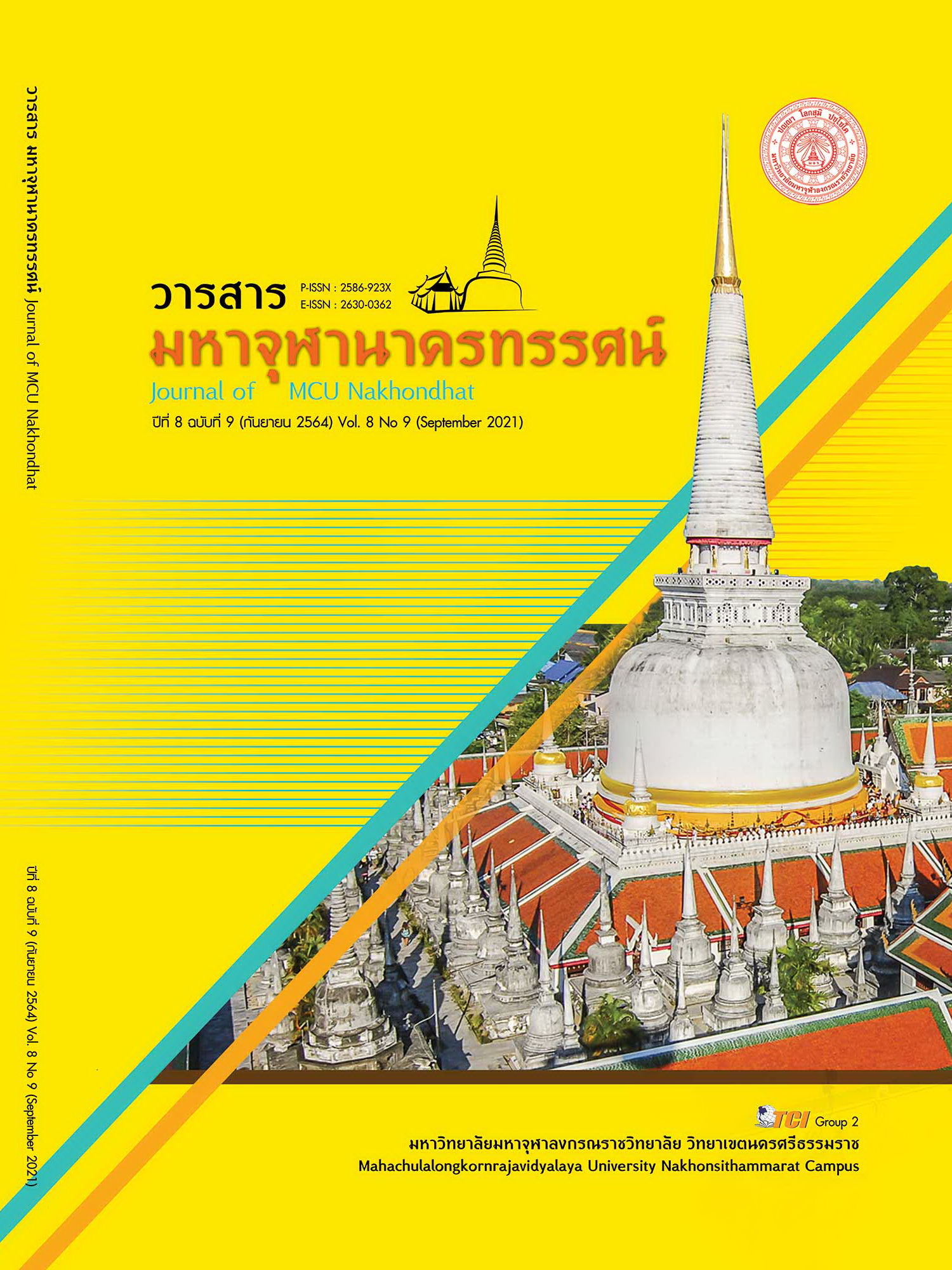GUIDELINES FOR LOCAL POLITICAL DEVELOPMENT: A CASE STUDY OF BANGRAKNOI DISTRICT ADMINISTRATIVE ORGANIZATION AMPHOE MUEANG NONTHABURI PROVINCE
Main Article Content
Abstract
The objectives of the study were to 1) study the factors affecting the development of politics in the Bangraknoi Sub-district Administrative Organization 2) study the guidelines for political development. It is a qualitative research, the data was collected from 19 community leaders and administrators of Bangraknoi Sub-district Administrative Organization, divided by in-depth interviews with 10 people and focus group discussion with 9 people. The data was analyzed by content analysis. The results of the study revealed that the factors affecting political development in the Bangraknoi Sub-district Administrative Organization. Most of them relate to the lack of knowledge of the public political understanding Failure to receive news from the Sub-district Administrative Organization. Failure to participate in political-related activities organized by the Sub-district Administrative Organization to train people as well as traditional people in the community have had economic problems not interested in politics not socializing, so it is easy to be influenced in the wrong politics. As for the political development approach in the Bangraknoi Sub-district Administrative Organization, most community leaders have similar views. Is to provide political knowledge to people in the community thoroughly organize activities where people in the community participate or take a role as both a leader and a follower in each activity open a platform for villagers to express their opinions between the community members and the executives and public relations are made to make people know all the information thoroughly community leaders also made additional recommendations on how to develop politics to maximize efficiency which includes the rule of law, the principle of awareness of responsibility. The main transparency the principle of participation for the benefit of the public and the principle of decentralization to rule the people in the community for real political strength.
Article Details
References
โกวิทย์ พวงงาม. (2559). ธรรมาภิบาลท้องถิ่น ว่าด้วยการมีส่วนร่วมและความโปร่งใส. กรุงเทพมหานคร: มิสเตอร์ก๊อปปี้.
ถวิลวดี บุรีกุล. (2550). พลวัตรการมีส่วนร่วมของประชาชน: จากอดีตจนถึงรัฐธรรมนูญแห่ง ราชอาณาจักรไทย พุทธศักราช 2550. (พิมพ์ครั้งที่ 1). กรุงเทพมหานคร: บริษัท เอ. พี.กราฟิค ดีไซน์และการพิมพ์ จำกัด.
ธีรยุทธ บุญมี. (2543). ภาพรวมการเมือง สังคม วัฒนธรรมไทย 2000. กรุงเทพมหานคร: สำนักงานกองทุนสนับสนุนการวิจัย.
บุญทัน ดอกไธสง. (2555). ขอบข่ายรัฐประศาสนศาสตร์ยุคโลกาภิวัตน์. กรุงเทพมหานคร: ปัญญาชน.
ปธาน สุวรรณมงคล. (2549). การเมืองการปกครองท้องถิ่น. นนทบุรี : สถาบันและกระบวนการทางการเมืองไทย มหาวิทยาลัยสุโขทัยธรรมาธิราช.
วุฒิสาร ตันไชย. (2552). ยุทธศาสตร์ การปกครองท้องถิ่น. กรุงเทพมหานคร: สถาบันพระปกเกล้า.
สกนธ์ วรัญญูวัฒนา. (2556). การกระจายอำนาจการคลังสู่องค์กรปกครองส่วนท้องถิ่น :แนวคิดและการปฏิบัติกรณีศึกษาประเทศไทย. กรุงเทพมหานคร: สำนักพิมพ์มหาวิทยาลัยธรรมศาสตร์.
สมบัติ ธำรงธัญวงศ์. (2559). การเมืองการปกครองไทย: ยุคเผด็จการ ยุคปฏิรูป. (พิมพ์ครั้งที่ 2).กรุงเทพมหานคร: เสมาธรรม.
เอนก เหล่าธรรมทัศน์. (2556). สองนคราประชาธิปไตย: แนวทางปฏิรูปการเมือง เศรษฐกิจเพื่อประชาธิปไตย. (พิมพ์ครั้งที่ 8). กรุงเทพมหานคร: คบไฟ.
Diamond, L. & Plattner M. C. . (2015). Democracy in Decline Baltimore. United States: Johns Hopkins University Press.
United Nation (UN). (2005). Building Partnership for Good Governance. New York: United Nation


